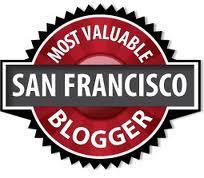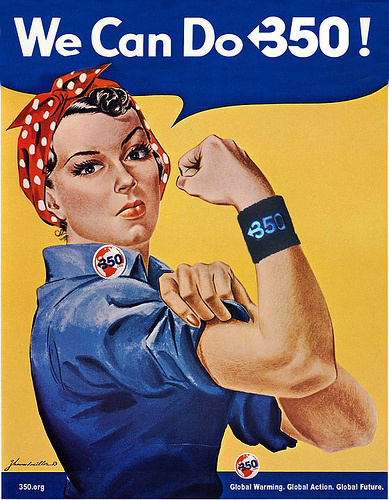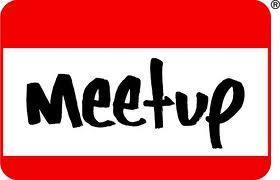Alon Shalev's Blog, page 60
September 17, 2011
Medcaid 2
Following on from yesterday's post, I am struggling to understand how individuals have been denied the right to sue the state that they pay taxes to. It seems a gross obstruction to personal freedom.However, the Justice Department has backed the State of California agreeing that the individual cannot sue, while also admitting that Federal law clearly states that Medicaid rates be "sufficient to enlist enough providers." In other words, there should be no discrimination of resources or access to treatment between the beneficiaries of Medicaid and everyone else in their state. Only what happens when that is precisely what is happening?
"California has been accepting more than $20 billion in federal Medicaid funds per year in exchange for its promise, among other things, to ensure that needy patients had access to health care," Democratic chiefs wrote in their brief, "California has failed to adhere to its obligations."
What they are fighting for is the right of the patient or the medical providers to challenge in court any violation of federal law. The response of the Justice Department is that federal health officials have "exclusive responsibility" to enforce the standards set and can punish a state by withholding Medicaid resources from any state found wanting.
The question is whether they would. One former federal health official told the Supreme Court that the DHHS was not able to enforce this stating it was "logistically, practically, legally and politically unfeasible." The reason being that the DHHS does not have either the staff, money or political clout to do this.
The supporters of the right to sue have all been endorsed and supported by the AARP, the American Hospital Association, the American Medical Association, civil rights groups and the U.S. Chamber of Commerce.
"Judicial enforcement is the only viable means to remedy states' noncompliance with the Medicaid Act," the A.M.A. said.
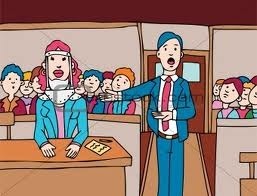
True protection can only come in the courts
In the true story behind my novel, The Accidental Activist, the British Government was ultimately found guilty of not protecting the citizen from a multinational corporation. In the US, the struggle is similar, except we are seeking protection from our own elected government and its agencies. The President, I feel, should understand this better than most.
——————————————————————————————————
Alon Shalev is the author of The Accidental Activist (now available on Kindle) and A Gardener's Tale. He is the Executive Director of the San Francisco Hillel Foundation, a non-profit that provides spiritual and social justice opportunities to Jewish students in the Bay Area. More on Alon Shalev at http://www.alonshalev.com/and on Twitter (#alonshalevsf).








September 16, 2011
Misguided Medicaid Law 1
My daily commute involves picking up people from the Casual Car Pool and driving from the East Bay to San Francisco, enabling them to get a free ride (though many offer me $1 towards the toll) and for me to use the car pool lane and pay a lower toll.
Most times we sit in silence and listen to NPR, but occasionally I strike gold. When the gentleman in the passenger seat tutted at a report about President Obama and Medicaid, I discovered that he is a lawyer and actually preparing a case to go before the Supreme Court. He sent me a New York Times article on the topic.

Medicaid - helping those who need it most
I find it hard to believe that President Obama could possibly be an obstacle to low-income people receiving health care. But when it is the Democratic leaders of Congress told the Supreme Court on Monday that President Obama was pursuing a misguided interpretation of federal Medicaid law, it raises an eyebrow.
The case focuses around the right of Medicaid beneficiaries to file suit and challenge cuts being made to Medicaid around the country on a state level when such cuts hurt their right to care.The Obama administration does not accept this right to sue claiming it "would undermine the effectiveness of Medicaid." There is also a myriad of court precedents that allow people to sue to block state actions that are inconsistent with federal law.
The politicians behind the brief include many of our top West Coast Democrats, including Representative Henry A. Waxman of California, an architect of Medicaid; Representative Nancy Pelosi of California, the House minority leader; Senator Harry Reid of Nevada, the Senate majority leader; and Senator Max Baucus of Montana, the chairman of the Finance Committee.
"The issue, of immense importance to poor people and states, comes to the Supreme Court in a set of cases consolidated under the name Douglas v. Independent Living Center of Southern California, No. 09-958. The court plans to hear oral arguments in October, with a decision expected by the spring. The original plaintiffs in the case, Medicaid beneficiaries and providers, say they were harmed by California's decision to cut payment rates that were already among the lowest in the country.
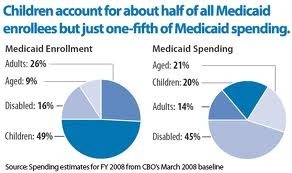
Children are one of the largest recipients of Medicaid.
The federal Medicaid law does not explicitly allow such suits. But the United States Court of Appeals for the Ninth Circuit, in San Francisco, said beneficiaries and providers could sue under the Constitution's supremacy clause, which makes federal law "the supreme law of the land."
More than 55 million people use Medicaid, which is often the fastest-growing item in many state budgets. It provides health coverage to the most vulnerable groups in our society including children, people with disabilities and nursing home residents.
The problem is exacerbated because many states, desperate to make cuts, have reduced the payment rates to doctors who take in Medicaid patients. This has led to the doctors, dentists, hospitals, pharmacies, nursing homes and other providers often refusing to take these patients and Medicaid patients are finding it increasingly difficult to find the medical services that they need. The government is involved because they reimburse the state for between 50%-75% of the costs.
The question is: what accountability is there for the citizen (other than the ballot box, I suppose) if we are denied legal recourse? In fact, is there a place in a democracy for the government to tell its citizens who they can and cannot sue? And what does this say about our President?
——————————————————————————————————
Alon Shalev is the author of The Accidental Activist (now available on Kindle) and A Gardener's Tale. He is the Executive Director of the San Francisco Hillel Foundation, a non-profit that provides spiritual and social justice opportunities to Jewish students in the Bay Area. More on Alon Shalev at http://www.alonshalev.com/and on Twitter (#alonshalevsf).
September 14, 2011
September is Locovore Month
There is a lot going on in September, some of it heavy, some of it fun. 9/11 stands out this year of course. It is also back to school for children and students and sometimes there is a feeling that we spent most of the summer on snooze and now it is back to top gear. For the Jewish People, this is a time of preparation as we approach our New Year and soon after, Yom Kippur, which while known as a day of atonement, is actually the conclusion of a month of self-analysis (who can atone for all their sins in one day?).
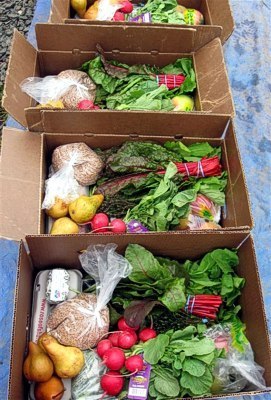
Community Supported Agriculture
But I also discovered something else about September. It is Locovore (also spelled Locavore) Month. The Urban Dictionary defines Locavores as people who eat food that is grown locally. Food grown in your region not only results in fresher and tastier foods, but also reduces pollution, keeps dollars in the community and has fewer food safety risks.
So I thought I would brainstorm a few simple ways we could celebrate Locovore Month:
1) Consider joining one of your local Community Supported Agriculture programs, where you receive a box of veggies weekly from a local farm. I wrote about this model a few month back.
2) Go to a Farmers Market. Yes I am often critical of these because they seem so pricey, but you do make a connection with your local farmers.

Farmers Markets - making connections
3) Host a potluck and have all your friends bring dishes that include food grown in your area (allowing local microbrewery products is acceptable in my opinion).
4) Support a local community garden. One with a social justice message (as well as an ecological one) is Spiral Gardens in Berkeley. You can volunteer and get dirt between your finger nails or stop by at their stall on Tuesdays. I wrote about Spiral Gardens here.
I believe there is considerable merit in the Locovore philosophy. I am not sure that total adoption is the right way, given that there are clear advantages to having access to very healthy produce grown in climates different to our own, but becoming more aware of our local farmers and supporting ourselves with what grows in our region is a sound value.
Finally, a left coast perspective: I discovered in my research that the Locovre movement gives credit for its creation to Santa Cruz and San Jose. How's that for some local pride!
——————————————————————————————————
Alon Shalev is the author of The Accidental Activist (now available on Kindle) and A Gardener's Tale. He is the Executive Director of the San Francisco Hillel Foundation, a non-profit that provides spiritual and social justice opportunities to Jewish students in the Bay Area. More on Alon Shalev at http://www.alonshalev.com/and on Twitter (#alonshalevsf).








September 13, 2011
Bill McKibben and the Durable Future
The other night I attended an interview of Authors Bill McKibben and Paul Hawken. I had just finished Bill McKibben's excellent book, "Deep Economy: The Wealth of Communities and the Durable Future," and was anxious to meet him and hear what he had to say. I had not read anything by Paul Hawken and he sounded interesting, but I'll concentrate on McKibben's work here.
Bill McKibben has written several books, but what he talked about in the interview was pretty much what was in Deep Economy. Mostly, McKibben advocates for smaller scale, more local economies and against globalization. His arguments take several forms.
As can be seen in many books of this general class, McKibben points out the waste involved (fuel, carbon output, etc) in global transport of food and other goods. In fact he talks about food quite a bit and gives many points to boost local farmers' markets. He talks about something that is known to students of sustainability, but not the general public: that large, so-called "factory" farms actually produce considerably LESS food than smaller farms tended to closely by individual farmers with smaller-scale machinery. This is largely due to intimate knowledge of the variations in the land and to the ability to "intercrop," or to plant one crop alongside or maybe in the shade of another. Large-scale machine farming makes both of these impractical.
But what is unique (or at least uncommon) about McKibben's perspective is his attention to the social costs of globalization and the benefits of returning to local economies. He points out how our mobile economy has led to less socialization among neighbors, and people in general.

I can't do it justice here, but Deep Economy is well worth reading. There's a lot more to it but it's not too difficult. Don't be put off by the title, it's written for non-economists. Bill McKibben is the founder of 350.org (focused on climate change and actually doing something about it) which is organizing a huge, worldwide day of action called "Moving Planet" on Saturday, September 24th. Go to the website www.moving-planet.org and find out what's happening near you.
-Tom Rossi
___________________________________________________________________________
Tom Rossi is a commentator on politics and social issues. He is a Ph.D. student in International Sustainable Development, concentrating in natural resource and economic policy. Tom greatly enjoys a hearty debate, especially over a hearty pint of Guinness.
Tom also posts on thrustblog.blogspot.com
___________________________________________________________________________








September 12, 2011
Nine Eleven – One Positive Outcome
For over four years the Berkeley Writers Group has been meeting weekly under the organization of Meetup.com, an organization dedicated to simply helping bring people together. It is a service I use without much thought. They make my organizational tasks simpler, end of story. But last week I discovered that this is not the case when I read a rare letter from Scott Heiferman, the Meetup Co-Founder. I am printing it in full as the only way to truly do it justice. Over to you, Scott.
Fellow Meetuppers,
I don't write to our whole community often, but this week is special because it's the 10th anniversary of 9/11 and many people don't know that Meetup is a 9/11 baby.
Let me tell you the Meetup story. I was living a couple miles from the Twin Towers, and I was the kind of person who thought local community doesn't matter much if we've got the internet and tv. The only time I thought about my neighbors was when I hoped they wouldn't bother me.
When the towers fell, I found myself talking to more neighbors in the days after 9/11 than ever before. People said hello to neighbors (next-door and across the city) who they'd normally ignore. People were looking after each other, helping each other, and meeting up with each other. You know, being neighborly.
A lot of people were thinking that maybe 9/11 could bring people together in a lasting way. So the idea for Meetup was born: Could we use the internet to get off the internet — and grow local communities?
We didn't know if it would work. Most people thought it was a crazy idea — especially because terrorism is designed to make people distrust one another.
A small team came together, and we launched Meetup 9 months after 9/11.
Today, almost 10 years and 10 million Meetuppers later, it's working. Every day, thousands of Meetups happen. Moms Meetups, Small Business Meetups, Fitness Meetups… a wild variety of 100,000 Meetup Groups with not much in common — except one thing.
Every Meetup starts with people simply saying hello to neighbors. And what often happens next is still amazing to me. They grow businesses and bands together, they teach and motivate each other, they babysit each other's kids and find other ways to work together. They have fun and find solace together. They make friends and form powerful community. It's powerful stuff.
It's a wonderful revolution in local community, and it's thanks to everyone who shows up. Meetups aren't about 9/11, but they may not be happening if it weren't for 9/11.
9/11 didn't make us too scared to go outside or talk to strangers. 9/11 didn't rip us apart. No, we're building new community together!!!!
The towers fell, but we rise up. And we're just getting started with these Meetups.
Scott Heiferman (on behalf of 80 people at Meetup HQ)
Co-Founder & CEO, Meetup
New York City
September 2011

Berkeley Writer's Group - 5 years with Meetup.
Thank you Scott and your team. Creating powerful, thriving community is the greatest action we can take to thwart the terrorists, in whatever form they come.
——————————————————————————————————
Alon Shalev is the author of The Accidental Activist (now available on Kindle) and A Gardener's Tale. He is the Executive Director of the San Francisco Hillel Foundation, a non-profit that provides spiritual and social justice opportunities to Jewish students in the Bay Area. More on Alon Shalev at http://www.alonshalev.com/and on Twitter (#alonshalevsf).
September 11, 2011
Nine Eleven
It's been 10 years since…I had planned to write about the terrible treatment of 9/11 responders who are not receiving the help they need, but somehow it doesn't seem the time. This is a day to remember those who died at the hands of people who would deny us our freedom. and reaffirm our fight against terrorism.
Our failure to meet the medical needs is a national disgrace, but I will write about this another time. Here is a beautiful tribute to what happened that day, ten years ago.
——————————————————————————————————
Alon Shalev is the author of The Accidental Activist (now available on Kindle) and A Gardener's Tale. He is the Executive Director of the San Francisco Hillel Foundation, a non-profit that provides spiritual and social justice opportunities to Jewish students in the Bay Area. More on Alon Shalev at http://www.alonshalev.com/and on Twitter (#alonshalevsf).
September 10, 2011
Turning Fifty – A Personal Post
This week, Mrs Blogs received her invitation to join the American Association of Retired Persons (AARP). While she has no intention of retiring just yet, this does signify that tomorrow she will celebrate her 50th birthday. A landmark, and one quite surreal when you don't look or act middle-aged, let alone as a retiree. I still remember like it was yesterday when we…
When I share my prolificity at book signings and author's panels, people ask how I manage to write, maintain a full time job and be an involved and committed father. My usual answer is that sleep is overrated and I have a very understanding wife.
Katherine Lanpher has her own take on turning 50.
Even our President has something to say:
http://www.youtube.com/watch?v=PegIGA...
But I just want to share how lucky I am to be with a partner who is so supportive, so optimistic, so unique. It makes everything in life possible.
Happy 50th, Boobie.
——————————————————————————————————
Alon Shalev is the author of The Accidental Activist (now available on Kindle) and A Gardener's Tale. He is the Executive Director of the San Francisco Hillel Foundation, a non-profit that provides spiritual and social justice opportunities to Jewish students in the Bay Area. More on Alon Shalev at http://www.alonshalev.com/and on Twitter (#alonshalevsf).
September 9, 2011
Israeli Kibbutz Goes 100% Solar
An Israeli solar technology company, Zenith Solar, is about to take a kibbutz (an intentional community) and produce solar energy to satisfy all the kibbutz's electricity. Kibbutz Yavne is in the south of Israel and enjoys long seasons of sunshine. It is a community of about 250 families.
Zenith Solar is introducing technology that can can transform 75 percent of the sunlight it absorbs into electricity and hot water at a cost of 8.6 cents per kilowatt hour. In comparison, most solar panels that generate electricity from sunlight do so with less than 15% efficiency, and cost more than double.
Most significant, the company claims that in peak conditions, their technology will provide energy that is competative to costs of traditional fossil fuels. In fact, given the additional costs that we know are necessary for environmental and health damage, this makes Zenith Solar technology the cheaper option and with no negative impact on the environment.
The commercial pilot stands on a half-acre plot at the edge of the kibbutz and will serve as a model for further solar farms that will hopefully be adapted for bigger urban concentrations as well as cheap small units for private homeowners.
Here is a short video on the project.
——————————————————————————————————
Alon Shalev is the author of The Accidental Activist (now available on Kindle) and A Gardener's Tale. He is the Executive Director of the San Francisco Hillel Foundation, a non-profit that provides spiritual and social justice opportunities to Jewish students in the Bay Area. More on Alon Shalev at http://www.alonshalev.com/and on Twitter (#alonshalevsf).








September 8, 2011
Cultural Death by Capitalism
Unbridled capitalism has turned the abundance of choice into a lack of variety. When Henry Ford held the monopoly on 'horseless buggies' and as he adopted the assembly line in its infancy, he was quoted famously as saying that "Any customer can have any car painted any colour they want, as long as that colour is black!" Thus began the way of life we know today.
Despite this beginning of mass production taking shape, we were still a country of independence and unique subcultures. When I was a kid, my family would drive across the country to Wisconsin and back to California in our black Ford Galaxy 500. To my parents, three younger sisters and me, every gas station, food joint and motel was unique. Each state was different from the next. Soda pops were regional, as were toppings on national classics like burgers and hot dogs. Service stations reflected their locations with souvenirs, such as the Jackalope – native to Wyoming. We knew when we crossed a state line simply by looking around us.
"As a child, we frequently drove from the Bay Area north to Grass Valley alon g Hwy 49. Auburn was a treat to stop in because of the rich gold-mining history displayed all throughout the town. My grandparents took us to a local café and candy shop. I was in my early twenties when I took my first solo trip along that drive. In just a few short years, the local SPD grocery chain had grown and now resembled every other chain store in the strip malls that now populated the once desolate highway. Ruby's Gifts had moved and was no longer the charming store it once had been. The same fast-foods were now as readily available on every corner here as back home in suburbia. The lusciously quiet tree-lined drive was overrun with the very places I longed to escape from." *
Thanks to the likes of Sam Walton and James Cash Penney, big box businesses have taken over the same routes, highways and countrysides that are laid out before my wife and I as we make the long trek on a cross-country roadtrip back home to Wisconsin. Where I once saw sloppy diners, roadside motels that had us peeking out the windows for Norman Bates, and "last chance stops" – now on our drive we see the bright, familiar lights of Walmart, Best Buy, fast food chains, Shells and Chevrons. In the entire state of Nebraska the only pizza we could find was the cardboard served at Pizza Hut.

We hear it all the time from Libertarians and Republicans: "No control or restrictions for the rich and big businesses! The free market gives us abundance and choice!" The problem with this is it gives advantages to people and entities that already have the edge. Big money wipes out unique products with cookie-cutter economies on an epic scale. Everything is a tired blur of a handful of logos from coast to coast. Few sights to see – even the truck stops have all been taken over by McDonald's and Subway – gone are the all-night greasy spoons with grizzled old haulers hunched over their bowl of chili with a cracked, worn coffee cup glued to their dirty hands.
"If half the employed population spent $50 at local, independent businesses, it would generate more than $42.6 billion dollars nationwide. For every $100 spent in locally owned stores, $68 returns to the community through taxes, payroll and other expenditures. If you spend that same amount at a national chain, only $43 stays local. Spend it online and none of it stays at home." – The 3/50 Project.
While Americans have fought against socialism, we have in fact, through our capitalist greed, ended up with nothing more than the variety of a communist government store.
- Roger Ingalls
* featuring guest blogger Kymberlie Ingalls, www.WriterOfTheStorm.com
photes by jackalope.org and shadetreemechanic.com








September 7, 2011
Microloans in Israel
Desmond Bradley first picked up on this partnership between the Koret Israel Economic Development Fund (KIEDF) and the San Francisco-based non-profit organization Kiva Microfunds. You can read his article here.
This is Kiva's first venture into Israel, it works in over 50 countries with local microloan agencies, where you can donating as little as $25 via their website. What I love about their system is the way that you can track the progress of the person/business you are helping. But enough about Kiva. As I mentioned, you can read about the organization here.
Israel has struggled since its independence with regard to its Arab and Bedouin population. As in the US, there is also a growing gap between the rich and low-income populations. This program will target Arab, Bedouin and low income Israelis.
The Koret Israel Economic Development Fund (KIEDF) has already loaned more than $177 million to 464,000 entrepreneurs over the past six years. Since 1994, KIEDF has facilitated close to $206 million in financing to almost 8,000 small and micro businesses in Israel, creating more than 40,000 jobs in the process.
Kiva needed to be convinced that Israel was a suitable candidate as it is perceived as a developed economy.
KIEDF managing director Carl Kaplan said "It took us a couple of years to convince them that not all of Israel is like that. We persuaded them that some sections of Israeli society – notably Arab and Bedouin women – are actually Third World. It's not a political issue."
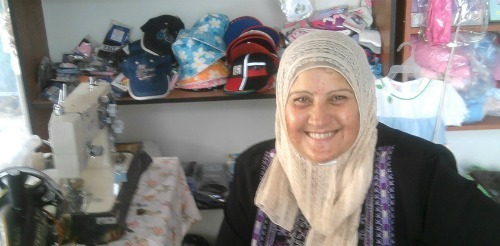
"We've already facilitated 1,800 loans to Negev businesses, mainly run by women," says Kaplan, This initiative is sponsored in teh US by California based American Friends of Koret Israel Economic Development Funds, and in the UK by The Portland Trust, a foundation that promotes peace and stability between Palestinians and Israelis through economic development.
Desmond Bradley sums up micro-financing superbly as "a widely used tool for fighting poverty and empowering women worldwide. Small, family-owned businesses have proven critical to the economic viability of women with limited employment opportunities."
All this week we have heard how the US economy is stalled, how there is no growth, how unemployment is rising. Is there a lesson to be learned here? Is anyone in 'DC thinking outside the box?
——————————————————————————————————
Alon Shalev is the author of The Accidental Activist (now available on Kindle) and A Gardener's Tale. He is the Executive Director of the San Francisco Hillel Foundation, a non-profit that provides spiritual and social justice opportunities to Jewish students in the Bay Area. More on Alon Shalev at http://www.alonshalev.com/and on Twitter (#alonshalevsf).


